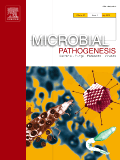
MICROBIAL PATHOGENESIS
Scope & Guideline
Unraveling the Mysteries of Pathogen Behavior
Introduction
Aims and Scopes
- Microbial Pathogenesis Mechanisms:
Research exploring the molecular and cellular mechanisms by which pathogens cause disease, including the study of virulence factors and host-pathogen interactions. - Antimicrobial Resistance:
Investigations into the mechanisms of resistance in various microbial species, including bacteria, fungi, and viruses, alongside strategies to combat resistance. - Therapeutic Innovations:
Development and evaluation of new therapeutic strategies, including vaccines, antimicrobial peptides, and phage therapy, aimed at treating infections caused by pathogenic microbes. - Microbiome Research:
Studies focusing on the role of the microbiome in health and disease, particularly how gut and environmental microbiota interact with pathogens and influence disease outcomes. - Zoonotic Diseases:
Research addressing the transmission and pathology of diseases that can be transmitted from animals to humans, emphasizing the importance of understanding these interactions for public health. - Infectious Disease Epidemiology:
Epidemiological studies aimed at understanding the prevalence, risk factors, and transmission dynamics of infectious diseases, particularly in specific populations.
Trending and Emerging
- Environmental Microbiology:
There is an increasing interest in the role of environmental factors and microbiota in disease processes, particularly in the context of climate change and its impact on microbial behavior. - Host-Microbiome Interactions:
Research focusing on the intricate relationships between the host's immune system and its microbiota is gaining traction, showcasing how these interactions can influence disease outcomes. - Vaccine Development:
A notable trend is the focus on innovative vaccine strategies, including multi-epitope vaccines and the use of adjuvants, reflecting the urgent need for effective vaccines against emerging infectious diseases. - Nanotechnology in Microbial Control:
The application of nanotechnology for developing new antimicrobial agents and delivery systems is on the rise, providing novel ways to combat drug-resistant pathogens. - Immunotherapy:
Emerging studies are exploring the potential of immunotherapies, including the use of monoclonal antibodies and immune modulators, in treating infectious diseases and their complications.
Declining or Waning
- Traditional Antibiotics:
There has been a noticeable decline in studies solely focused on conventional antibiotics, as researchers shift towards exploring alternative therapies like phage therapy and antimicrobial peptides. - Single Pathogen Studies:
Research focusing exclusively on individual pathogens without considering their interactions within the microbiome or with host systems is waning, as there is a growing recognition of the complexity of microbial ecosystems. - Basic Pathogen Characterization:
The focus on basic characterization of pathogens, such as morphology and biochemical properties, is decreasing in favor of more integrative approaches that include genomic and proteomic analyses.
Similar Journals
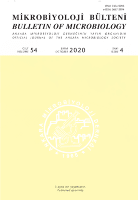
MIKROBIYOLOJI BULTENI
Unveiling the Complexities of Microbial LifeMIKROBIYOLOJI BULTENI, with ISSN 0374-9096, is a prestigious academic journal published by the ANKARA MICROBIOLOGY SOC, located in Ankara, Turkey. Established in 1973, this journal has been a vital conduit for disseminating research in the fields of Immunology, Microbiology, and Infectious Diseases, garnering a reputation as a significant contributor to the scientific community. The journal is currently ranked in the Q3 category within Immunology and Microbiology (miscellaneous), and Infectious Diseases, indicating its impactful presence amidst contemporary research. With access options that may be restricted, MIKROBIYOLOJI BULTENI actively welcomes submissions that advance the understanding of critical microbiological principles and practices, thereby supporting both national and international research efforts. Researchers, professionals, and students are encouraged to explore the latest findings shared in this journal, as it continually shapes the landscape of microbiology and infectious disease studies through its comprehensive and rigorous peer-reviewed publications.
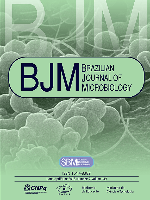
BRAZILIAN JOURNAL OF MICROBIOLOGY
Championing Open Access to Microbial DiscoveriesThe BRAZILIAN JOURNAL OF MICROBIOLOGY, published by SPRINGER, stands as a pivotal platform in the field of microbiology, offering an open access model since 2000. With the ISSN 1517-8382 and E-ISSN 1678-4405, this esteemed journal encourages the dissemination of groundbreaking research and innovative methodologies that contribute to the understanding of microbial life, its role in health and disease, and its environmental impact. Based in Switzerland and accessible globally, the journal’s categorization in the Q3 quartile for Microbiology reflects its commitment to quality and relevance in the scientific community. As of 2023, it ranks 121 out of 182 in the Scopus listings for Microbiology, further highlighting its growing influence in immunology and microbiological research. With converged years spanning from 1992 to 2024, the journal continues to support a diverse range of studies, making it an invaluable resource for researchers, professionals, and students alike.
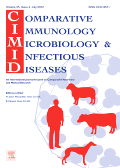
COMPARATIVE IMMUNOLOGY MICROBIOLOGY AND INFECTIOUS DISEASES
Exploring Host-Pathogen Dynamics for Global HealthComparative Immunology Microbiology and Infectious Diseases, published by Elsevier Science Ltd, is a prominent journal dedicated to advancing the fields of immunology, microbiology, infectious diseases, and veterinary sciences. Established in 1978, this journal has become a vital resource for researchers and professionals alike, with a commendable impact factor that reflects its significance in academia. The journal, available in both print and electronic formats (ISSN: 0147-9571, E-ISSN: 1878-1667), stands out for its commitment to disseminating innovative research findings, particularly through its categorization in Q2 and Q3 quartiles across various related disciplines as of 2023. The journal aims to provide insightful comparative analyses that enhance our understanding of host-pathogen interactions, immune responses, and disease manifestations. With a global readership base, it serves as a platform for collaborative discourse among scientists and professionals, ultimately contributing to the improvement of health outcomes worldwide.
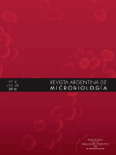
REVISTA ARGENTINA DE MICROBIOLOGIA
Unlocking the potential of open-access microbiological research.REVISTA ARGENTINA DE MICROBIOLOGIA, published by the ASOCIACION ARGENTINA MICROBIOLOGIA, stands as a prominent open-access journal in the field of microbiology and medicine since its establishment in 1979. With an ISSN of 0325-7541 and an E-ISSN of 1851-7617, this journal has paved the way for disseminating high-quality research while enhancing accessibility for academics and practitioners worldwide. The journal has achieved notable rankings, being classified in Q3 for Medicine (miscellaneous) and Q3 for Medical Microbiology in 2023, reflecting its commitment to advancing knowledge in these critical areas. Despite its relatively modest impact factors, it occupies a vital niche in the academic landscape, fostering collaborations and innovative research among experts. With Open Access available since 2013, REVISTA ARGENTINA DE MICROBIOLOGIA not only facilitates widespread distribution of valuable scientific information but also empowers researchers, professionals, and students to stay abreast of the latest findings and developments in microbiology. For those engaged in the evolving realm of microbiology, this journal serves as an essential resource for sharing insights and advancing the scientific community.
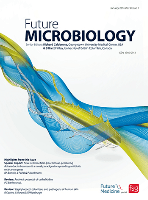
Future Microbiology
Unveiling the Secrets of MicrobiologyFuture Microbiology is a leading journal in the field of microbiology, published by FUTURE MEDICINE LTD in the United Kingdom. Since its inception in 2006, it has aimed to provide a comprehensive forum for the advancement of knowledge in microbiological research, particularly within the medical domain. With its current impact factor classifications placing it in Q3 for general microbiology and Q2 for medical microbiology as of 2023, it has established itself as a significant contributor to scientific discourse. The journal, featuring ISSN 1746-0913 and E-ISSN 1746-0921, actively engages researchers, professionals, and students, presenting them with novel insights and findings that enhance our understanding of microbial science. The publication is designed not only to showcase innovative research but also to foster collaborations and discussions across disciplines. While currently not offering open access, Future Microbiology remains committed to disseminating high-quality content that informs and inspires the ongoing exploration of microbiology and its critical role in healthcare.
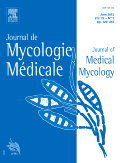
JOURNAL DE MYCOLOGIE MEDICALE
Bridging Mycology and Clinical PracticeJOURNAL DE MYCOLOGIE MEDICALE is a premier publication in the field of infectious diseases, particularly focusing on the study of mycology and its clinical implications. Published by MASSON EDITEUR, this esteemed journal is based in France and has been disseminating valuable research since its inception in 1994. With an ISSN of 1156-5233 and an E-ISSN of 1773-0449, it plays a critical role in advancing knowledge in mycological infections, positioning itself in the Q3 category for infectious diseases as per the 2023 quartiles. As indicated by its ranking in Scopus, ranking #142 out of 344 in the medicine-infectious diseases category, the journal maintains a prominent presence within the academic community, appealing to researchers, healthcare professionals, and students alike. Although access options are not open access, the journal endeavors to promote a deeper understanding of mycological studies that are crucial for combating ongoing and emerging infectious threats. As it continues to converge on new findings up to 2024, JOURNAL DE MYCOLOGIE MEDICALE remains an essential resource for those invested in the critical intersections of mycology and medicine.

Microbiology Research
Innovating Insights in Microbiology ResearchMicrobiology Research, published by MDPI, stands as a pivotal open-access journal in the field of microbiology, having established its presence since 2010. Based in Switzerland, this journal strives to provide a platform for innovative research and cutting-edge findings in various branches of microbiology, including medical microbiology and molecular biology. With an impact factor that reflects its dedication to scholarly excellence, Microbiology Research is classified in the Q3 category for both microbiology and medical microbiology, and Q4 for molecular biology as of 2023, indicating its growing importance and outreach within these domains. The journal aims to foster discussion and collaboration among researchers, professionals, and students by presenting articles that cover a wide array of topics and methodologies in microbiological research. Leveraging its open-access model, Microbiology Research ensures that high-quality research is accessible to a global audience, thus facilitating the advancement of knowledge and innovation in the microbial sciences.

mSphere
Pioneering research at the intersection of microbiology and molecular biology.mSphere is a leading open-access journal published by the American Society for Microbiology, dedicated to the dynamic fields of Microbiology and Molecular Biology. Since its inception in 2016, mSphere has rapidly established itself as a reputable source of scholarly research, achieving notable impact factors and excellence within the academic community. The journal ranks in the top quartile (Q1) amongst its peers in Microbiology, and Q2 in the field of Molecular Biology, demonstrating its significance and relevance through Scopus rankings—specifically, it holds the #42 spot out of 182 in the Microbiology category and #108 out of 410 in Molecular Biology. With an editorial commitment to advancing the understanding of microbial and molecular sciences, mSphere provides an accessible platform for researchers, professionals, and students alike to disseminate groundbreaking findings. The journal promotes rigorous peer-review and invites innovative contributions aimed at enhancing microbial research mobility and molecular exploration. Accessible openly since 2016, mSphere continues to thrive as an influential publication driving scientific dialogue and discovery in the microbiological sciences.
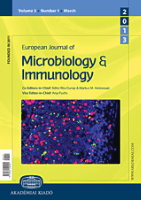
European Journal of Microbiology and Immunology
Bridging Gaps in Immunology ResearchWelcome to the European Journal of Microbiology and Immunology, a premier platform dedicated to advancing the field of microbiology and immunology through the dissemination of high-quality research. Published by AKADEMIAI KIADO ZRT in Hungary, this journal serves as an essential resource for researchers, professionals, and students alike, fostering scholarly communication and innovation in these critical areas of medical science. The journal, which holds an ISSN of 2062-8633, presents rigorously peer-reviewed articles that contribute to our understanding of microbial diseases, immune responses, and related fields, currently ranking in the Q2 and Q3 quartiles across multiple categories such as immunology and microbiology. By embracing an inclusive scholarly dialogue and offering a robust readership, the European Journal of Microbiology and Immunology aims to inspire the next wave of discoveries and collaborations within the global scientific community.

Mediterranean Journal of Infection Microbes and Antimicrobials
Unlocking insights into the realm of infectious microbes.Mediterranean Journal of Infection Microbes and Antimicrobials is a distinguished open-access journal published by GALENOS PUBL HOUSE, dedicated to advancing the understanding of infectious diseases and microbiology. Since its inception in 2011, this journal has been a vital resource for researchers, professionals, and students interested in the intricate world of microbes and their impacts on human health. With its ISSN 2147-673X, the journal has progressively gained visibility, although it currently holds a Q4 ranking in multiple categories including Immunology and Microbiology, and Infectious Diseases for the year 2023. The journal operates from its headquarters in Istanbul, Turkey, and features a rich array of articles that contribute to the field’s body of knowledge. As a platform enhancing the accessibility of research, it invites submissions from global contributors to foster collaboration and innovation in tackling microbial challenges.